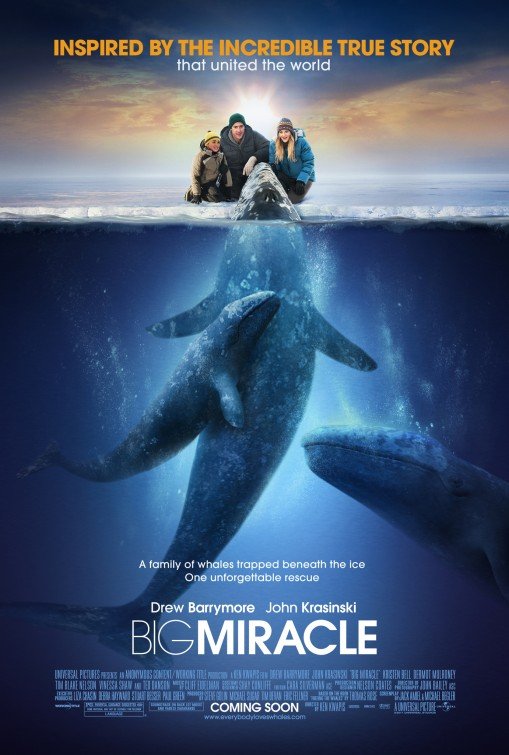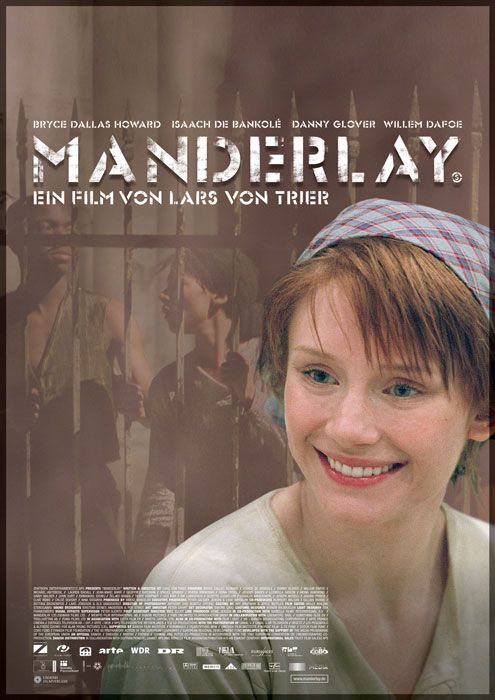“Anti-American Gothic”

| None | Light | Moderate | Heavy | |
|---|---|---|---|---|
| Language | ||||
| Violence | ||||
| Sex | ||||
| Nudity |
What You Need To Know:
Using a minimalist setting that attracts viewers to the emotional power of MANDERLAY’s stellar cast, the movie has the potential to be both artistically complex and emotionally challenging. It is unfortunate, then, that von Trier paints America’s racial problems in such heavy-handed strokes. Despite aesthetic talents, the movie ultimately comes across as contrived, ill-informed and pretentious. The story emphasizes the depravity of human nature, but discerning viewers will be offended by the movie’s racial slurs, graphic violence, explicit sex, nudity, and its radical, anti-American humanist worldview.
Content:
(HH, B, C, RHRH, APAP, L, VVV, SSS, NNN, MMM) Strong humanist worldview with biblical elements emphasizing the depravity of human nature, one scene portrays a hymn being sung before a meal followed by a prayer, plus strong revisionist history depicts slavery as still being practiced in the American South during the 1930s (though obviously metaphorical) and a strong anti-American message exaggerating racial injustices in the United States; seven light obscenities and one light profanity, but several ‘n’ words and other disturbing racial slurs; graphic violence depicting a woman being shot at point blank range, several other shootings and one scene in which man is violently whipped; very strong sexual content including a scene depicting a woman masturbating, another brief but graphic sex scene portraying fornication; a few scenes of full frontal male and full frontal female nudity; no drinking or smoking; and, gambling, deception, revenge, theft, and racism.
More Detail:
After departing the tragic ashes of torched Dogville, Grace (Bryce Dallas Howard), her father (Willem Dafoe) and his band of gangsters pass through Manderlay, a plantation in Alabama. During their stop, Grace is appalled upon discovering that slavery still exists on the farm, despite the practice being outlawed some 70 years beforehand. Apparently wary of the naiveté of his daughter’s idealism, Grace’s selfish yet ever-pragmatic father insists she not get involved, but Grace nevertheless demands to be left behind (along with a few of her father’s men) in order to free the slaves and teach them self-sufficiency.
Grace’s first task of officially freeing the slaves comes quickly and easily when the elderly plantation owner (Lauren Bacall) passes away soon after Grace’s arrival. Both frightened and ill-equipped to survive in the free world, the former slaves remain on the farm and form something of a commune under Grace’s leadership. Her next undertaking, however, which includes educating the ex-slaves about democracy, proves to be a thorny, intricate and frustrating endeavor.
The problems at Manderlay are as plentiful as they are harmful. A swarming storm shrouds the farmland with dust, famine strikes, health problems arise, and the workers are struck with vices that include gambling and theft. Grace also discovers the plantation was governed in the past by “Mam’s Law,” a notebook that systematically classifies each slave by personality types. Despite their newfound independence, and much to Grace’s dismay, the ex-slaves still regard Mam’s Law as an authority. To make matters worse, Grace’s feelings of loneliness and isolation begin to take their toll, and she is haunted by lust for ex-slave Timothy (Isaach De Bankole). As troubles continue to mount at Manderlay, Grace’s rose-colored glasses threaten to darken with her increasingly austere surroundings.
Using a minimalist setting that smartly pulls the audience’s attention to the emotional power of MANDERLAY’s stellar cast, the movie has the potential to be both artistically complex and emotionally challenging. It is unfortunate, then, that writer and director Lars von Trier paints America’s racial problems in such broad, heavy-handed strokes. Despite his obvious aesthetic talents, MANDERLAY ultimately comes across as contrived, ill-informed and pretentious.
Alden Pyle, the protagonist in Graham Greene’s novel THE QUIET AMERICAN, dreams of inspiring democracy in Vietnam, but nevertheless ends up reaping destruction and chaos for all his well-intended optimism. Regarding Pyle, one character remarks, “I never knew a man who had better motives for all the trouble he caused.” One could say the same about Grace and her persistent philanthropy, which, despite her noble mission, seems hopelessly naïve and doomed for failure. Perhaps Grace’s most obvious and serious flaw, however, is the patronization she showers upon those she aspires to help.
It is ironic, then, that von Trier is afflicted by the same disease of arrogant condescension that plagues his heroine. The Danish director, who has never even paid so much as a visit to the United States, feels somehow qualified to critique America in not one, but three movies. Though American bashing is typically an activity reserved abroad for cowardly French intellectuals, von Trier, who says of himself, “I’m afraid of everything in life, except filmmaking,” has taken up the cause. A look at his background, on the other hand, explains (though certainly does not justify) the director’s habit of heaving stones from his glass house.
Raised by radical, nudist, Communist parents in an environment which, as von Trier bluntly puts it, permitted everything except “feelings, religion and enjoyment,” it is fitting that his handiwork manifested in MANDERLAY is morbid and miserable. Nor is it surprising that the movie, despite all its artistic ambition, does nothing more than restate (and exaggerate) a problem in a longwinded, painstaking way.
MANDERLAY is the product of a self-important, ill-informed provocateur. The movie emphasizes the depravity of human nature, but media-wise viewers will be offended by the movie’s racial slurs, graphic violence, explicit sex, nudity, and radical humanist worldview. MANDERLAY shuns America, and Americans will likewise shun MANDERLAY.


 - Content:
- Content: 

